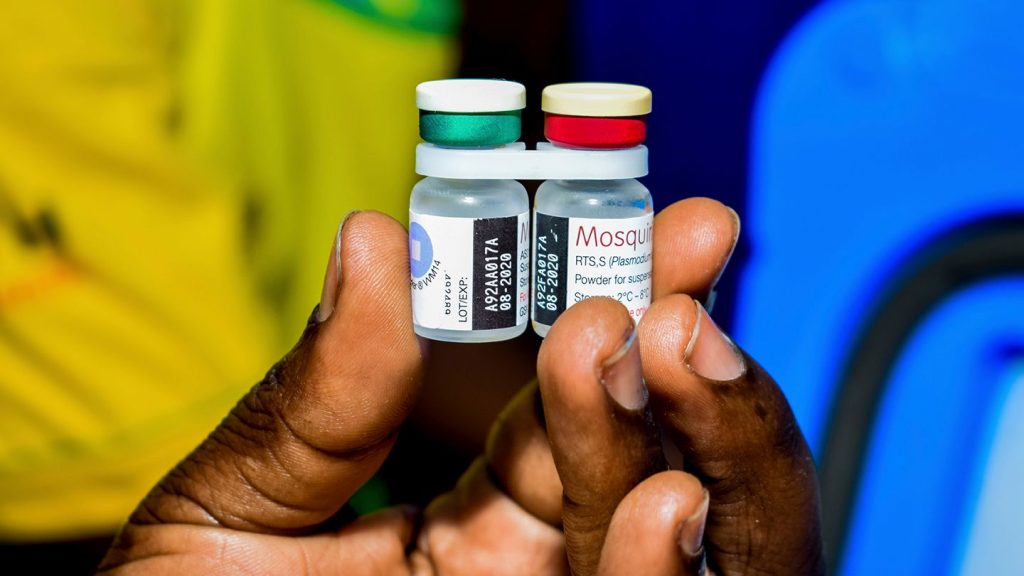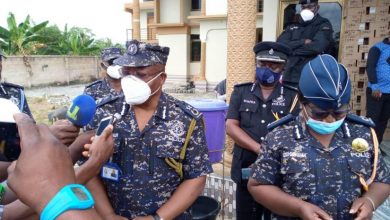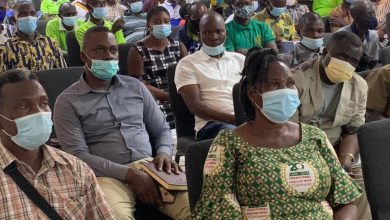
Acting Programme Manager, National Malaria Elimination Programme of Ghana Health Service (GHS), Dr. Nana Yaw Peprah, has debunked claims that industry players deliberately introduced the new malaria vaccine-R21 a few days after the new mosquito strain was discovered.
The vaccine was developed by Oxford University and manufactured by the Serum Institute of India.
The Food and Drugs Authority (FDA) disclosed that it has given market authorisation to the new malaria vaccine – R21.
The FDA says after a thorough evaluation of the quality, efficacy, and safety of the vaccine, they realized that the benefits far outweigh the risks.
A similar malaria vaccine RTS, S which was the world’s first malaria vaccine was also developed in 2019 for children between 6 months upwards.
A new strain of mosquito, Anopheles stephensi, was discovered in parts of the capital Accra-Tuba and Dansoman, a few days after the announcement of the approval of a malaria vaccine -R21, for use in Ghana.
Some Ghanaians argued that the new vaccine was introduced in an attempt to compel Ghanaians to accept the new vaccine.
But reacting to this on the Citi Breakfast Show with Bernard Avle, Dr. Peprah explained, “We can’t conclude that it’s about money. It’s difficult, but it wasn’t a deliberate attempt to bring these two together [RTS,S and R21-vaccines]. It’s just happened that we have identified a strain of mosquito which we think can only be contained when all stakeholders come on board. They started working on the R21 vaccine 30 years ago, so it’s not like a new thing that we are trying to put together with the mosquito new species. So there is no evil thought with this”.
He said industry players are excited about vaccines due to the important roles they play in the fight against malaria.
“We are excited about vaccines because we believe that they are important in this fight, vaccines are part of the interventions we are using. In fact, we are using it in high-burden areas. Whether it’s RTS,S or R21 vaccine, it all depends on the approval processes. As at when it’s available to be used, we will use it, we are really excited about it [R21-vaccine]. It’s early days yet, we have to wait for clinical trials because that is when donors come in,” he asserted.
Acting Programme Manager, National Malaria Elimination Programme of Ghana Health Service disclosed that the country was able to discover the new breed of mosquito through surveillance.
“The new breed adapts easily, it’s very dynamic, it’s able to live in both clean and dirty waters. That makes it a very deadly one in that it can increase in population. It has resistance issues unlike the ones we are used to, which is why it has become an issue. We know that mosquito flies, and have been found in Africa, it’s moving all around the place, and until you put surveillance, you may not identify it even if it exists. We were able to pick it up through surveillance,” he underscored.
He said despite the new breed of mosquito, they are confident of containing malaria, calling on the public to be involved to help contain the new breed.
“We are calling on the communities to ensure that we are able to contain the Anopheles stephensi. We are doing a lot to contain it. We have zero confidence of containing malaria,” he stated.
April 25 is slated for the celebration of Malaria Day at the International Conference Center dubbed ‘zero malaria’.
Source- Citinewsroom




